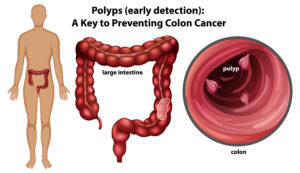
Colorectal cancer is one of the most common cancers affecting both men and women. It begins in the colon or rectum and often develops slowly over time. The good news? When detected early, it’s highly treatable and sometimes even preventable.
This article will guide you through the causes, early warning signs, and available screening methods, so you can protect your health and make informed choices. If you are searching for the top 10 gastroenterologist in surat, knowing the right information beforehand will help you discuss concerns confidently with your specialist.
What is Colorectal Cancer?
Colorectal cancer develops when abnormal cells grow uncontrollably in the colon or rectum. These abnormal growths, called polyps, can turn cancerous if not removed in time. While the disease can affect anyone, certain lifestyle and genetic factors can increase your risk.
Causes and Risk Factors
Colorectal cancer doesn’t have one single cause, but research has identified several key risk factors:
- Age: Most cases occur in people over 50, but younger individuals are increasingly being diagnosed.
- Family History: A close relative with colorectal cancer increases your risk.
- Diet: High intake of red meat, processed foods, and low fiber can contribute to the disease.
- Lifestyle: Sedentary habits, smoking, and excessive alcohol use are linked to higher risk.
- Medical Conditions: Inflammatory bowel diseases like ulcerative colitis or Crohn’s disease raise the chances.
- Obesity: Carrying extra weight puts strain on your digestive health and can lead to cancer development.
Early Warning Signs to Watch Out For
Colorectal cancer may not show symptoms in its early stages, which is why regular screenings are crucial. However, as it progresses, you may notice:
- Persistent changes in bowel habits (diarrhea, constipation, or narrow stools)
- Blood in stool (bright red or very dark)
- Unexplained weight loss
- Abdominal pain or cramps that don’t go away
- Fatigue or weakness due to anemia
- Feeling that your bowel doesn’t empty completely
⚠️ If you notice any of these symptoms, seek medical advice immediately.
Why Early Detection is Key
Early-stage colorectal cancer is often treatable with surgery alone and has a high survival rate. As the cancer advances, treatment becomes more complex and recovery chances decrease.
This is why screening is essential—even if you feel perfectly healthy.
Screening Options for Colorectal Cancer
Screenings can detect polyps before they turn cancerous. Here are the most common options:
- Colonoscopy: A camera examines the entire colon and rectum; polyps can be removed during the procedure.
- Fecal Occult Blood Test (FOBT): Detects hidden blood in stool samples.
- Sigmoidoscopy: Examines only the lower part of the colon.
- Stool DNA Tests: Looks for abnormal DNA linked to cancer.
How to Reduce Your Risk
You can take proactive steps to lower your chances of colorectal cancer:
- Eat a high-fiber diet rich in fruits, vegetables, and whole grains.
- Limit red and processed meats.
- Exercise regularly to maintain a healthy weight.
- Avoid smoking and excessive alcohol consumption.
- Get screened as recommended by your doctor.
Treatment Options
If diagnosed, treatment will depend on the cancer’s stage:
- Surgery to remove cancerous sections of the colon or rectum.
- Chemotherapy to destroy remaining cancer cells.
- Radiation therapy for certain rectal cancers.
- Targeted therapy to block cancer cell growth.
- Immunotherapy to strengthen your immune system’s response.
Bullet Points Summary
- Colorectal cancer is common but highly treatable when caught early.
- Risk factors include age, family history, diet, lifestyle, and certain medical conditions.
- Early signs include blood in stool, changes in bowel habits, unexplained weight loss, and fatigue.
- Screening options: colonoscopy, FOBT, sigmoidoscopy, stool DNA tests.
- Prevention: healthy diet, exercise, avoid smoking/alcohol, regular check-ups.
- Treatments vary from surgery to advanced targeted therapies.
Frequently Asked Questions (FAQs)
Q1: At what age should I start screening for colorectal cancer?
Most people should start screening at age 45, but those with higher risk may need earlier tests.
Q2: Is colorectal cancer hereditary?
Yes, having a close family member with the disease increases your risk. Genetic counseling can help determine your risk level.
Q3: Can diet really prevent colorectal cancer?
A balanced diet rich in fiber and low in processed foods can significantly reduce your risk.
Q4: How often should I get a colonoscopy?
If your results are normal, once every 10 years is typical. Higher risk individuals may require more frequent screenings.
Q5: Does colorectal cancer always require surgery?
Not always. Early cases may be treated by removing polyps during a colonoscopy, while advanced cases often require surgery combined with other treatments.
